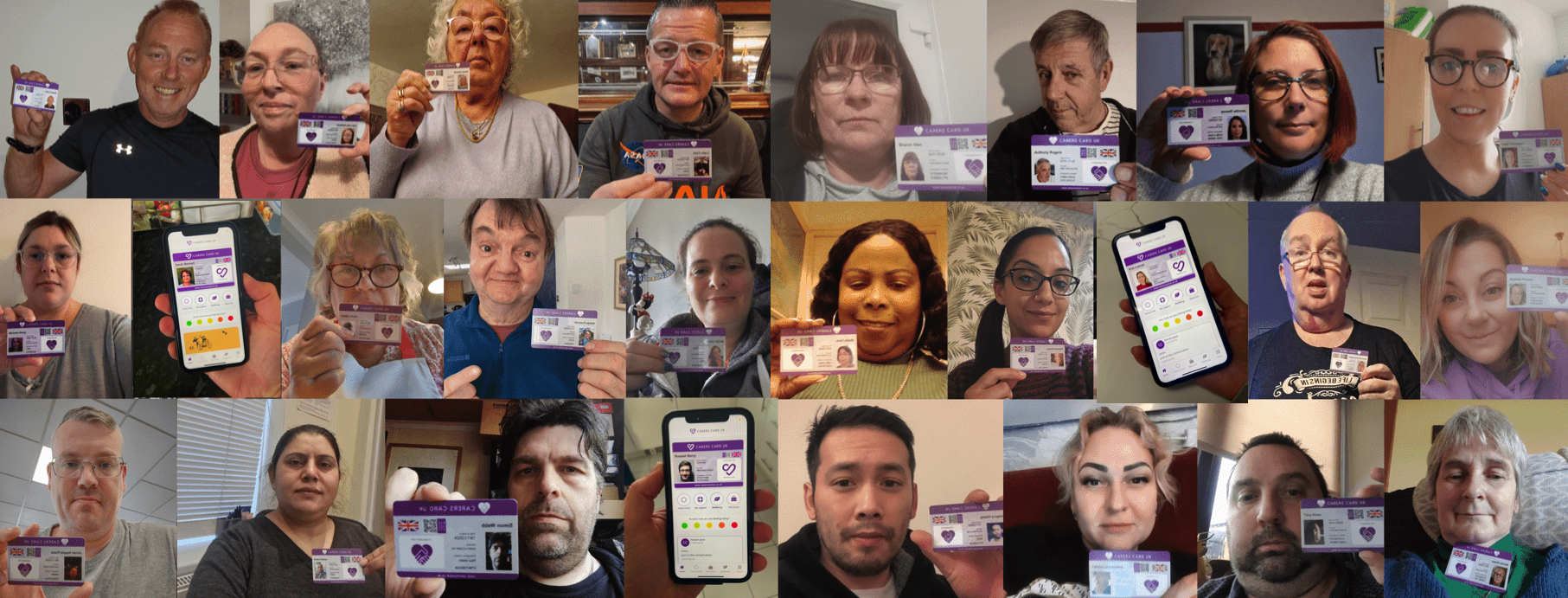Am I a carer?
Take our quick test to find out
You could be
If you’re unsure whether or not you’re a carer then that’s no surprise at it usually takes someone 2 to 3 years to come to the realisation that they’re a carer.
3 in every 5 people will have to care for someone at some point in their life. To put that into some perspective, there’s around 70 million adults in the UK which means over 40 million of them will have to care for someone at some point in the future, if not already.
In short, a carer is anyone who cares, for a family member or friend who due to illness, disability, a mental health problem or an addiction, cannot cope without their support.
What is a carer?
A large percentage of people don’t realise that they’re carers mainly because of the perception that you need to be a professional or be paid to be labelled a carer. This can’t be further from the truth. The fact is that, whether you’re paid or not, if you care for someone regularly in their daily life and they’re not able to manage or cope without your support then you are a carer. Unfortunately, we’re unable to tell you that you are a carer. However, we can help you decide whether you’re a carer by providing you with some information.
Support can come in a variety of different ways and it doesn’t matter how much or little support you provide. Here’s just a few example of way in which you may offer support to someone:
- You help someone get dressed or use the toilet
- You take someone to see their local GP
- You translate for someone on a regular basis
- You have to help ensure someone is getting enough to eat and drink
- You help clean someone’s house, do chores or do small DIY projects for them
- You help someone with their finances or paying bills
- You help someone take the correct medication
- You take someone for regular walks
- You take the time to talk and listen to someone on a regular basis
These are just a few examples of different ways you may be caring for someone and there are many others.
The relationship between you and the person you support for doesn’t dictate as to whether you’re a carer either. Whether you’re supporting; your husband, wife, partner, son, daughter, friend or even a neighbour, it matters little. You are still providing a caring role – you are a carer.
Caring for someone doesn’t just involve carrying out physical activities necessary for support. If you look after someone with a mental health problem, then what you’re doing also counts as caring, In fact, giving emotional support is a big part of caring.
We hope the information above helps you decide as to whether you’re a carer. If you’re still unsure then feel free to try our “Am I a carer” quiz.
Take our quiz
Start quiz
Proud to be supporting


